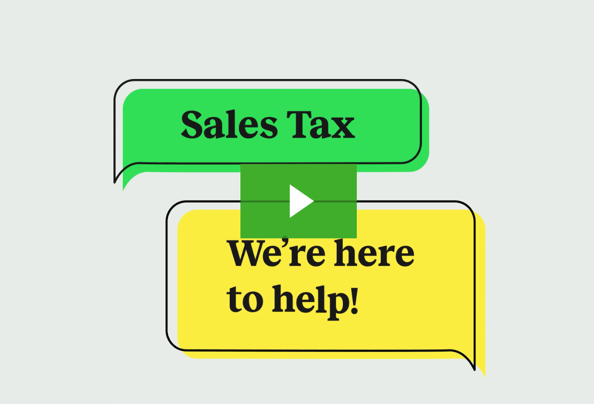5 Sales Tax Mistakes Online Sellers & Their Accountants Make
by November 1, 2020
This guest post was written by Michael J. Fleming, Director of Partner Relations at Peisner Johnson & Company, LLP.
At TaxJar we spend a lot of time talking to financial professionals in order to help our customers do right when it comes to sales tax. Of course, it’s easy to make a mistake with such a complex topic. So we recently caught up with Michael J. Fleming of Peisner Johnson & Company and he gave us the following scenarios when an eCommerce seller (or their accountant) might make big sales tax mistakes:
1. Failure to register and collect sales tax when necessary. – In order for a state to force you to pay or collect its taxes you must have some link or connection with that state. This link is called nexus. You may have heard that that this link must be substantial and that it must be physical. While this is true, neither of those terms have been defined by the US Supreme Court, which has refused to hear all cases pertaining to sales tax nexus since 1992. In light of this, the states have been very aggressive in extending their reach. For example, most recently, states have been successful in arguing that even selling through website affiliates creates nexus where those affiliates reside. This is a worrisome development for online sellers, to be sure.
Can States Do That? It definitely seems like many states have overstepped their authority — so what do we recommend? When it comes to deciding where to collect sales taxes, we usually recommend a conservative approach. In other words, follow the state guidelines if you have meaningful exposure. The greatest tragedy in sales tax is to forego collecting the sales tax from your customer at the point of sale only to have the state come back at some later point and assess you for 7-10 years of back taxes, which will then come out of your pocket plus penalty and interest.
2. Registering and collecting tax when not necessary. – Now, on the flip side, sometimes companies go too far the other way. That is they register to collect taxes where not necessary or where the dollar amounts are not meaningful. If you have small amounts of sales in a given state, the cost of compliance could be greater than the costs associated with paying back taxes, penalties and interest.
3. Failure to utilize resale certificates. – When purchasing goods for sale either directly or with a drop shipper, you do not have to pay tax, if you provide a valid resale certificate. The rules for what constitutes a valid certificate vary, but you can increase your margins by knowing and following the rules.
4. Collecting and not remitting tax. – This is the cardinal sin of the sales tax world and state revenue officers take a very dim view of it. Virtually all states can impose criminal penalties if the dollar amounts are large enough.
5. Collecting and remitting to the wrong state. – Many companies feel that they have their bases covered if they collect tax on all their sales and then pay it to their home state. This is not a good option either, as the state where the tax was legally du may view this as a “tax-collected-not-remitted” (remember the cardinal sin above?) situation. At the very least they will want their tax, penalty and interest and leave it up to you to get the money back from your home state.
Let’s hear from other tax professionals! What are some other common mistakes you see with your clients? Let’s discuss in the comment section below.
About Peisner Johnson
Peisner Johnson, founded in 1992, is the largest national CPA firm that is focused entirely on solving state and local tax issues. Peisner Johnson is comprised of former state auditors and other professionals with years of state and local tax experience. Peisner Johnson has experience with clients of all sizes, in all industries and currently works in all 50 states, U.S. territories and Canadian Provinces.Please note: This blog is for informational purposes only. Be advised that sales tax rules and laws are subject to change at any time. For specific sales tax advice regarding your business, contact a tax advisor.








